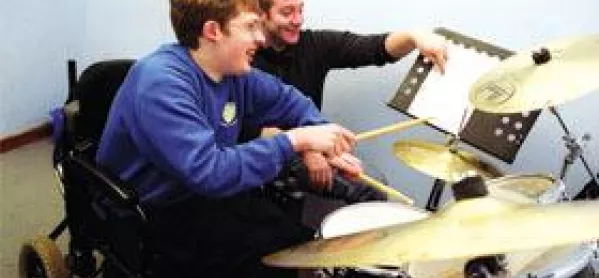Why we must be in it for the long haul on ASN transition

Thousands of teenagers with a wide range of conditions and disabilities struggle for years after leaving school because they are being “failed” by professionals and policies, campaigners have warned.
In a hard-hitting report, the Scottish Transitions Forum (STF) argues that the one in five school-leavers with additional support needs (ASN) should be offered more than a decade of help - from the ages of 14 to 25 - to make the move from school to college, university and work.
It says that despite some regions such as Highland being consistently good at helping pupils to plan for the future early, provision by other authorities is a postcode lottery that leaves many vulnerable young people facing a void.
And although looked-after children are to receive support up to their 26th birthday under the Children and Young People Act 2014, there is no such requirement for those with ASN.
The STF, which represents more than 300 groups working on transition issues, called for the same legal provision to be extended to ASN as one of seven key principles that must be adopted to tackle a “serious” lack of action.
“This period of transition in young people’s lives is not just a single event such as starting college,” said James Fletcher, director of the Association for Real Change Scotland, which leads STF and compiled the report. “It’s a period of change that happens over a number of years and those years are the starting point of the rest of their adult lives.
“We are asking that organisations across Scotland get behind the principles set out in this report and give these young people and their families the support they are entitled to.”
The report outlines the need to “fundamentally change in legislation, policy and practice” the way education, social care and other services help children with ASN to move into adulthood.
“There is substantial evidence to demonstrate that early intervention has a profound effect on future life planning. This approach has been put into local authority policy in Highland and Islands,” it says. “Unfortunately, for many young people it does not happen.”
The report calls on inspectorate bodies including Education Scotland to review the provision of transition planning for 14-year-olds in their inspection criteria.
Tam Baillie, Scotland’s commissioner for children and young people, said the report was a “welcome step” towards reducing the stress of transitions for vulnerable groups.
Scott Davidson, now 20 and doing a retail course, has autism and learning difficulties and was previously suspended from college after kicking a locker as he struggled “unsupported” with his anxieties.
His mother, Liz, from Gorebridge near Edinburgh, said: “I thought I would have to give up my job and we would lose our home. The support just wasn’t there [and] he couldn’t cope.”
Education Scotland said it would consider the report. A spokeswoman added that inspections already looked at transitions and the body had recently issued advice for schools making it clear they should ensure that transition programmes met the needs of all learners.
Under the Education (Additional Support for Learning) Act 2004, councils and other agencies must start planning transition for ASN students at least a year before they leave school. Related official guidance adds that it will “often be better” to start transition planning “much earlier.perhaps even in the early years of secondary school”.
Michael Matheson, minister for public health, said the STF report was “a useful document” and the key principles should be adopted by all professionals.
However a government spokesman said there were currently “no plans” to legislate for support up to the age of 25.
A spokesman from local authorities body Cosla said the report set out some “useful principles” on transitions for children and young people with ASN.
But he added: “That said, Scotland’s councils already take seriously the well-being and future life chances of all children, including those with additional support needs.”
Keep reading for just £1 per month
You've reached your limit of free articles this month. Subscribe for £1 per month for three months and get:
- Unlimited access to all Tes magazine content
- Exclusive subscriber-only stories
- Award-winning email newsletters


